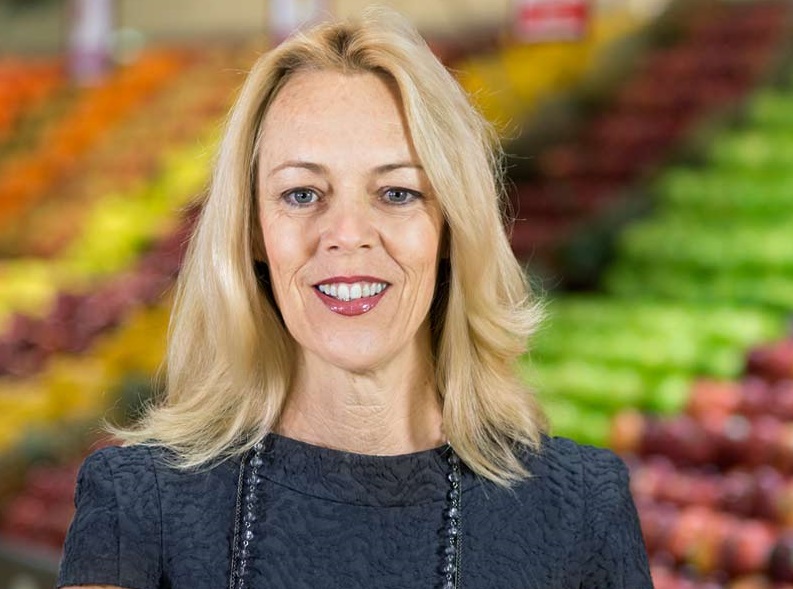Given the debate recently, Dietitian Connection asked a range of dietitians about their opinions/perspectives on a sugar or sugar-sweetened beverage tax
Sharon Natoli, Dietitian & Director, Food & Nutrition Australia
Thomas Jefferson once said ‘In matters of style, swim with the current, in matters of principle, stand like a rock’. Sugar is currently in style in the fashionable world of food and it seems many are swimming with the current. My concern about the potential introduction of a sugary drinks tax is that it may be perceived as action has been taken to address the obesity issue when it may have very little impact, leaving the real issue (over consumption of discretionary foods as a group) still quite untouched. Recent calls for consideration of a sugary drinks tax in Australia claim the introduction of such a tax may reduce rates of some chronic diseases and save lives over a 25 year period. The numbers in relation to this represent an impact on 0.000018% of the population. This is small when 60% are affected by overweight and obesity. The Australian Bureau of Statistics recently released the data on the amount of free sugars Australians are eating showing this represents an amount of 10.9% of energy intake which is just above the 10% level recommended by the World Health Organisation (WHO). Based on this estimate, it means Australians are eating about 5 grams more free sugars (about 1 teaspoon) than the WHO guidelines. If a public health campaign focused on swapping out discretionary foods for nutrient rich foods, not only would it be possible to reduce added sugar to close to the 10% target but nutrient intakes would be improved and the public would be provided with a certain about of education about how to balance their diet, rather than simply paying more for a sugary drink e.g. the ‘Swap It Don’t Stop It’ campaign which encouraged people to swap chocolate biscuits for nuts, or fruit salad for cake etc. This approach takes into account more than just one of the Dietary Guidelines (our key ‘principles’) and I feel would be a much more effective and holistic way to go and would also be relevant to a broader section of the population. Is it possible to build on a program that already exists rather than spending more tax payer dollars administering a new tax?
One final thought is that the focus on reducing fat intake in the past didn’t work to address obesity so why will turning attention to reducing sugar work? We’re already starting to see sugar free chocolate and sugar free donuts made with coconut oil, and erythritol and I’m concerned that the extreme focus on reducing added sugar may actually lead to the development of more nutrient poor foods that have no benefit at all for promoting better nutrition.
If Australians are spending 58% of their food budget on discretionary foods as highlighted recently, and a tax is added to sugary drinks, surely that means the potential exists for this percentage to increase even further? Aren’t efforts better spent telling people what to do, rather than just what not to do?
Conflict of interest – I provide nutrition advisory services to a number of food industry clients, some which add sugars to some of their products. The above is purely my own thoughts and opinion.
Bill Shrapnel

I gave some thought to the issue of a tax on soft drinks last year and wrote a paper on it (1). Based on this work I think it is highly unlikely that we will see such a tax in Australia, for the following reasons.
Firstly, we have a conservative government and people of this persuasion have faith in the market to deliver what people want and need. From this perspective the only reason for intervening in the marketplace with regulation, such as a tax on soft drinks, is if ‘market failure’ is evident e.g. a scenario where a profit-driven industry meeting a consumer demand is having an adverse societal impact. The early arguments in favour of a tax on sugar-sweetened beverages in the United States were based on the concept of market failure – consumers were demanding sugary drinks and obesity rates were rising, increasing health costs to the community.
The market failure argument may have appeared compelling in the context of the increases in consumption of sugar-sweetened beverages that occurred in the United States during the 1980s and 1990s and the associated increase in the prevalence of overweight and obesity. However, the upward trend in consumption of sugar-sweetened beverages has now been reversed in that country, with falls observed in children and adults since the early 2000s. Two-thirds of the recent fall in intake of added sugars in the United States has resulted from decreased consumption of sugar-sweetened soft drink. For people who love markets, this is not an example of market failure but a case of the market doing its job, providing increasingly health conscious consumers with the products they demand. The market failure argument has even less resonance in Australia as the per capita sugar intake from water-based beverages has been falling for nearly two decades.
The second reason that any government would be reticent to impose a tax on soft drinks is the actions of the companies concerned. If Australian soft drink manufacturers had thumbed their noses at health authorities and continued to push sugar-sweetened beverages to the exclusion of all else they could have been perceived as irresponsible and invited regulation. However, instead, the companies produced low-joule alternatives to sugary soft drinks. Initially these ‘diet’ beverages appealed mainly to women – men don’t diet – but more recently low-joule soft drinks targeted specifically at adolescent males have been produced and actively marketed. The positive actions of the soft drink companies haven’t been done it out of the goodness of their hearts but as a means of survival in a tough marketplace. Nevertheless, public health benefit is a likely consequence.
Governments might be prepared to regulate if a problem hasn’t been addressed and is getting worse but are unlikely to act if a problem has being actively and successfully addressed for decades.
1. Shrapnel W. Trends in Sugar-Sweetened Beverages: Are Public Health and the Market Aligned or in Conflict? Nutrients. 2015 Sep 23;7(9):8189-98. doi: 10.3390/nu7095390.
Bill Shrapnel is a vigneron who dabbles in nutrition. He is an advisor to the Sugar Research Advisory Service.
Prof Clare Collins

I strongly agree with Rosemary Stanton (via DAA listserve email)
We should support the SSB tax with one voice
It would be a signal that more focus needs to be on nutrition, which means the govt needs ways to find more $$
At least this would be a start and we need to lobby for investment in nutrition at every lifestage and both prevention
(and treatment ) for chronic disease conditions
It is a national tragedy that we have unemployed and under employed APDs while our country has such high rates of nutrition related disease burden
I agree – one voice
Clare Collins is affiliated with the Priority Research Centre in Physical Activity and Nutrition, the University of Newcastle, NSW. She is an NHMRC Senior Research fellow. She created the online Healthy Eating Quiz and the Australian Eating Survey. She has received funding from a range of research grants including NHMRC, ARC, Hunter Medical Research Institute, Meat and Livestock Australia. She has consulted to SHINE Australia and Novo Nordisk. Clare Collins is a spokesperson for the Dietitians Association of Australia on specific nutrition issues, including Australia’s Healthy Weight Week.
Zoe Nicholson, figureate Dietitian

(reproduced with permission from original Facebook post of 30 March)
The tax on sugar: a much more complex idea than perhaps most people realise.
It took me a few goes at reading this article to really get my head around it, after all, taxes, socio-economic circumstances, poverty, health and even sugar are all complex issues
I just want to be clear that in posting this I am not saying we should not be concerned about a high consumption of sugary drinks, we should.
But I can’t say the world would be better off without soft-drinks as I enjoy tonic with my gin and to completely ban sugary drinks – which is not what this article or the sugar tax is about, but rather what some anti-sugar people say should happen – would be to forgo this pleasure. That said, the world would no doubt be better off with a significant decrease in their availability, but this is not something that is within the consumers control. Remember it is the consumer who is being taxed.
I’ve included the definition of regressive tax here as I’m happy to admit, I had to look it up.
Regressive tax: taking a proportionally greater amount from those on lower incomes.
Some excerpts:
“The choice, in other words, is not the consumer’s, and never was. Just like the choice of the legislator on how to restrict availability of food products judged to be unhealthy isn’t restricted to taxing consumers.”
“The benefit of the tax, however, is that – as the UK Office for Budgetary Responsibility expects – it will be passed on entirely to the consumer, thereby reinforcing the ideological notion that obesity, like lung cancer before it, represents a failure in the exercise of personal responsibility. A failure that must be priced accordingly.”
“It is quite possible that a sugar tax would work, by a very limited definition of working, but I wish we could tax paternalism* instead. I wish we could tax the logic that says that if the poor suffer poor health, it’s because of poor habits.”
*Paternalism (or parentalism) is behavior by an organization or state which limits some person or group’s liberty or autonomy for what is presumed to be that person’s or group’s own good.
I think this paragraph sums up nicely what those with adequate resources perhaps don’t fully appreciate when we suggest everyone would be better off if they just did “so and so”.
“Porridge, they reasoned, is cheaper than a breakfast of margarine and toast, and far more nutritious. Their mission therefore, as well as documenting the flawed diets of those families, was to initiate them to the simple practice of preparing this cornerstone meal.
Her conclusion is this: the women of Lambeth managed as well as anyone could, better than Pember Reeves – still armed with science but deprived of her income – would have herself. And this goes for the porridge too, which would have taken far too long to make, and even if the women somehow had had the time, they lacked a good enough pot to ensure it wouldn’t burn, and even if somehow they had had the time and a good enough pot, they couldn’t afford the cream or milk to make it palatable to the husband and the children.”
